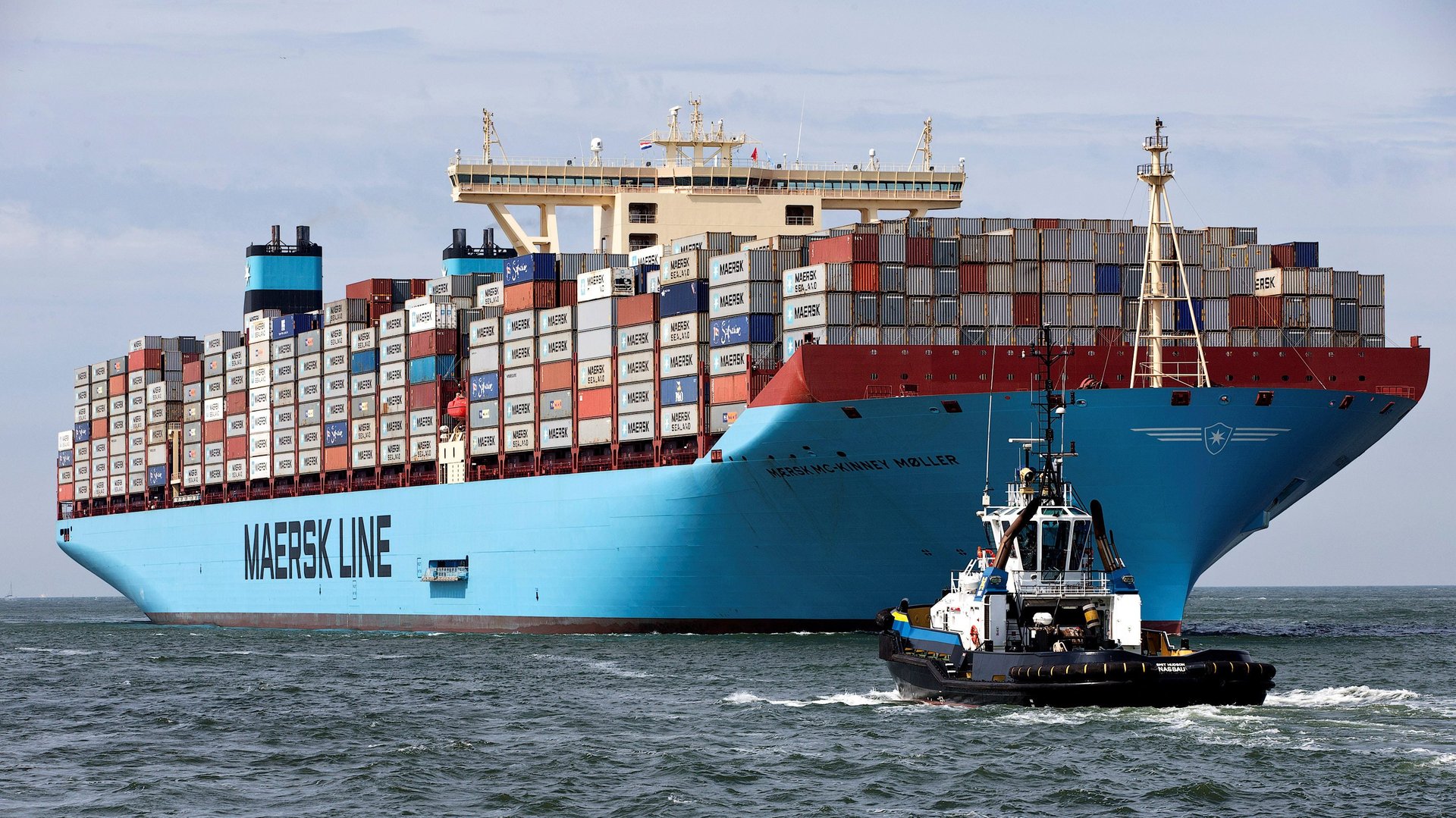Alibaba will sell you anything, including a spot on a container ship
You can now use Alibaba to book a trip at sea—not on the latest cruise, but aboard a shipping container leaving China. Reuters reports that the e-commerce giant is selling spaces on Maersk container ships to business customers through its OneTouch service.


You can now use Alibaba to book a trip at sea—not on the latest cruise, but aboard a shipping container leaving China. Reuters reports that the e-commerce giant is selling spaces on Maersk container ships to business customers through its OneTouch service.
The service reduces dependency on some tasks performed by freight forwarders—middle-men between merchants and shipping lines—and streamlines the export process for merchants. Users can lock in cargo space on certain routes by pre-paying their deposit, Maersk told Reuters. Freight forwarders’ services, such as documentation and customs clearance, can be provided through the OneTouch platform, Maersk said.
Alibaba’s OneTouch platform offers a suite of export services to merchants, including financing and dealing with customs. It’s the fastest growing unit in Alibaba’s business-to-business division, and has serviced 20,000 merchants, according to trade publication Internet Retailer.
Bringing container ships online underscores how Alibaba is increasing its exposure to the global logistics business, either through partnerships with the likes of Maersk, the world’s largest container-shipping line, and the US Postal Service; or through direct investments, like the more than $300 million it pumped into Singapore’s postal service, SingPost.
That’s not even accounting for Cainiao, the logistics firm Alibaba co-founded in 2013 and in which it retains a 47% stake. Cainiao already deals with 70% of mainland China’s deliveries, and its distribution hubs run as large as 37 football fields for a single facility, according to Bloomberg. Alibaba also has a minority stake in Shanghai-listed YTO Express, which handled an average of 8 million parcels daily in 2015. To put that in context: FedEx moves about 12 million packages a day.
Alibaba’s billions of dollars in logistics investments make even the titan of e-commerce, Amazon, look inadequate. Jeff Bezos’ company has leased a fleet of cargo planes and purchased thousands of cargo trucks to service its own delivery needs; it also own 68.5 million square feet of warehouse and distribution space in the US—about half of what Walmart has, according to Bloomberg.
But while Alibaba and Amazon are often painted as competitors, there are fundamental differences between their businesses. Alibaba helps retailers and suppliers meet customers; it doesn’t hold its own inventory (Amazon does). That freedom has given Alibaba a chance to invent much of its own infrastructure, from logistics to payments, and in doing so to change the way China shops. Now its sights are set on the way China ships too.
This article was updated to include information about freight-forwarders’ role in the new service.